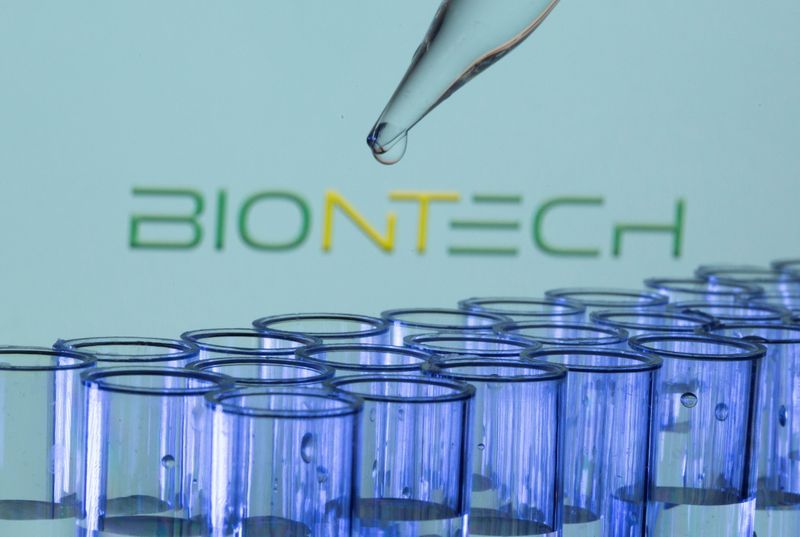By Ludwig Burger
FRANKFURT (Reuters) - Germany's BioNTech SE (NASDAQ:BNTX) said the COVID-19 vaccine it is developing with partner Pfizer (NYSE:PFE) will likely generate up to 17 billion euros ($19.6 billion) in revenues this year, as booster shots take hold and use in children increases.
Based on planned deliveries of up to 2.5 billion doses so far, BioNTech said in a statement on Tuesday that it expects 16 billion to 17 billion euros in revenue accruing to it from the vaccine this year
That was up from a forecast in August of 15.9 billion euros based on deliveries plus an order backlog of about 2.2 billion doses at the time.
That figure includes milestone payments from partners and a share of gross profit in its partners' territories, the company added.
Pfizer, for its part, last week said it expected to book $36 billion in 2021 sales of the COVID-19 vaccine and forecast another $29 billion from the shot in 2022, topping analyst estimates for both years.
The company reiterated that no clinical data so far suggested the need for a new vaccine that addresses the highly contagious delta variant, or any other current variant, given the efficacy of two or three shots of its established product.
It is, however, working on new vaccine versions targeting the delta and alpha variants to establish a development and launch routine in case the need for adjusting to as-yet unknown variants arises in future.
Other vaccine makers, such as AstraZeneca (NASDAQ:AZN) and its partner Oxford University, have embraced a similar approach, in particular to respond quickly to any future mutation that enables the virus to evade established vaccines.

BioNTech and Pfizer "are establishing a preemptive prototype approach to evaluate the development, manufacturing and regulatory processes for variant specific vaccines," it said.
BioNTech reaffirmed statements by the partners that they expect to manufacture up to 3 billion doses by the end of 2021 and potentially up to 4 billion doses in 2022.